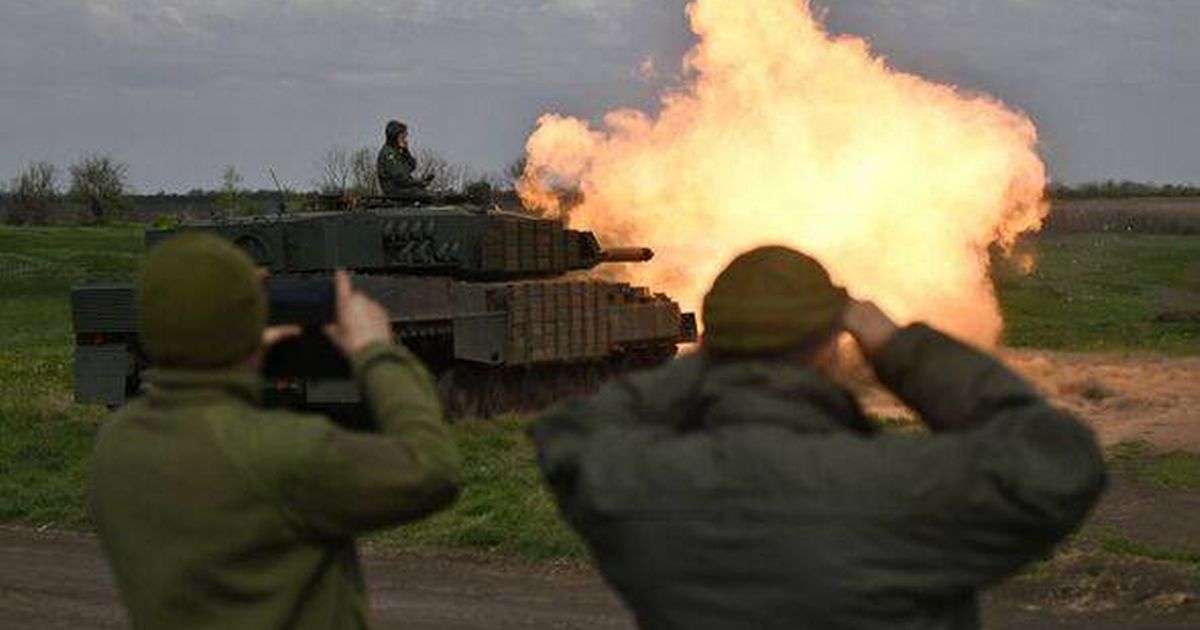The US is dramatically phasing out crucial security assistance programmes for European armies stationed along Russia’s menacing border, as Donald Trump aggressively pushes the continent to cough up for more of its own defence.
03:11 ET, 05 Sep 2025Updated 07:53 ET, 05 Sep 2025
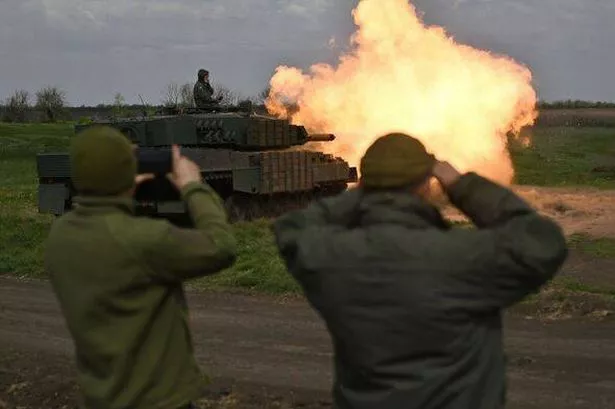 The US is dramatically phasing out crucial security assistance programmes for European armies (Image: Getty)
The US is dramatically phasing out crucial security assistance programmes for European armies (Image: Getty)
The US is drastically reducing crucial security assistance programs for European armies stationed along Russia’s threatening border, as Donald Trump forcefully urges the continent to pay more for its own defense.
Last week, Pentagon officials shocked European diplomats with the news that America would no longer fund essential programs that train and equip militaries in eastern European countries, which would be at the forefront of any catastrophic conflict with Russia, according to sources familiar with the explosive issue reported by the Financial Times.
The Pentagon program’s spending, falling under an authority known as section 333, must be approved by the US Congress. However, the Trump administration has notably declined to request additional funds. It comes after a lip reader revealed the chilling 3-word promise that Donald Trump whispered into Vladimir Putin’s ear at their Alaska summit.
READ MORE: Sinister reason for Vladimir Putin’s distinctive walk is hidden in his top-secret pastREAD MORE: Psychologists reveal Trump showing ‘dead ringer’ symptom of horror disease getting ‘worse and worse’
Pentagon funds already approved will remain available until the end of September 2026. A White House official stated that the controversial move aligns with President Donald Trump’s persistent efforts to “re-evaluate and realign” foreign aid, corresponding with a comprehensive executive order he issued on his first day in office.
“This action has been coordinated with European countries in line with the executive order and the president’s long-standing emphasis on ensuring Europe takes more responsibility for its own defense,” the official declared, , according to the Express
Under the immense pressure from Trump, US Nato allies in June conceded and agreed to significantly boost their defense spending to 5 percent of GDP.
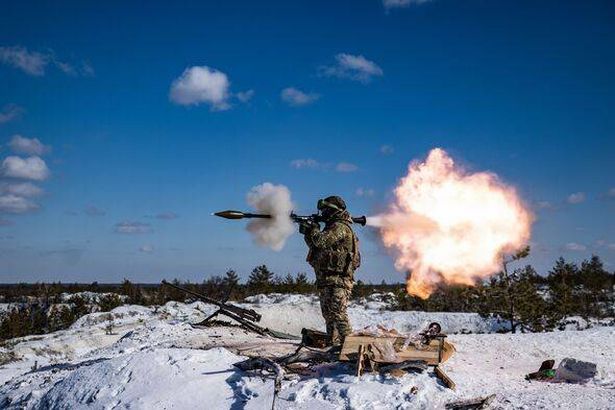 Pentagon officials last week delivered the bombshell news to stunned European diplomats(Image: Getty)Billions are at risk for vulnerable nations
Pentagon officials last week delivered the bombshell news to stunned European diplomats(Image: Getty)Billions are at risk for vulnerable nations
The potential termination of section 333 funding could wreak havoc on a program with an astonishing global budget exceeding $1bn, as per Senate aides’ estimates. This could potentially cut hundreds of millions of dollars that the US sends to the vulnerable Russian border countries.
The Pentagon has declined to disclose to lawmakers the exact amount that will be harshly phased out.
The program allocated a whopping $1.6bn in Europe between 2018-2022, approximately 29 percent of the worldwide 333 spending, according to the US Government Accountability Office. Key beneficiaries include Estonia, Latvia, and Lithuania.
Officials from numerous European embassies in Washington, including those from countries that do not receive the aid, attended a tense meeting where Pentagon officials announced the devastating cuts.
The shocking move seemed designed to prompt wealthier European countries to cover more of the frontline states’ crucial security assistance, one European official disclosed.
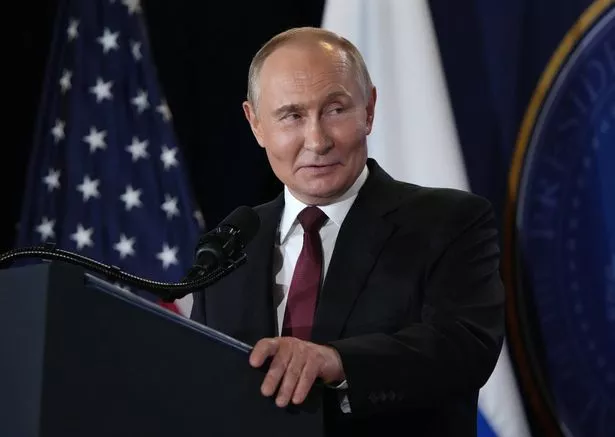 Russian President Vladimir Putin delivers a statement during a press conference with U.S. President Donald Trump(Image: Getty Images)Europe scrambles for answers
Russian President Vladimir Putin delivers a statement during a press conference with U.S. President Donald Trump(Image: Getty Images)Europe scrambles for answers
European governments were left stunned by the harsh announcement and are frantically seeking further details from Washington, according to two diplomats briefed on the heated discussions.
European officials are scrambling to determine if domestic funding can bridge the dangerous gaps, or if the drastic cuts will disastrously impact crucial aspects of European security.
“If they are being brutal then it will have big implications,” one diplomat stated, noting that Nato would certainly be impacted as some of the funding was channeled through the alliance.
“It’s causing a lot of concern and uncertainty,” another diplomat expressed, likening it to Trump’s previous decision to drastically reduce US international aid.
Senator Jeanne Shaheen, the leading Democrat on the Senate’s foreign relations committee, labeled the cuts as a “misguided move that sends exactly the wrong signal as we try to force Putin to the negotiating table and deter Russian aggression”.
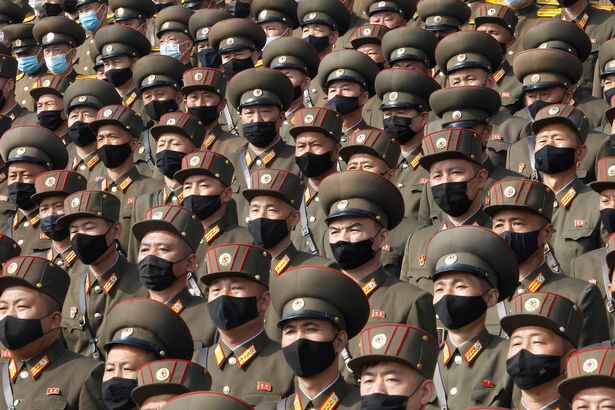 Masked North Korean troops on parade(Image: AP)Key programs at risk
Masked North Korean troops on parade(Image: AP)Key programs at risk
The US’s separate Foreign Military Financing program, which offers funding for countries to purchase major items like fighter jets, ships, and tanks, is not affected by the most recent decision, according to an individual familiar with the situation.
These cuts also coincide with Pentagon policy chief Elbridge Colby’s efforts to redirect US defense resources to the Indo-Pacific to enhance deterrence and decrease the likelihood of a conflict with China over Taiwan.
Earlier this year, Washington suddenly stopped shipments of munitions and several high-value weapons destined for Ukraine after Colby launched a review that sparked worries about America’s own stockpiles. Trump subsequently ordered the deliveries to restart.
The future of the Baltic Security Initiative, a distinct program established in 2020 to strengthen the military forces of Estonia, Latvia and Lithuania, is also facing serious jeopardy. Last year, Congress authorized $288mn to fund the initiative.
The White House has not requested additional funding for the program in next year’s budget. A person familiar with the matter told the Financial Times the program was undergoing reevaluation by the administration.
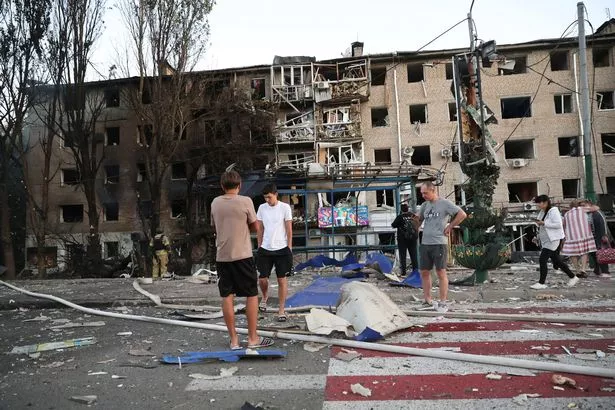 Local residents stand near their destroyed home following Russian air strike in Zaporizhzhia, Ukraine(Image: AP)Baltic states confront harsh reality
Local residents stand near their destroyed home following Russian air strike in Zaporizhzhia, Ukraine(Image: AP)Baltic states confront harsh reality
The elimination of US security aid would be “very tough” for the Baltic nations, stated retired US admiral Mark Montgomery, currently a senior fellow at the Foundation for the Defense of Democracies think-tank. “The whole idea here is making them capable of defending themselves.”
All three nations share land boundaries with Russia, and the area has experienced attacks linked to Moscow, including strikes on vital infrastructure in the Baltic Sea, cyber assaults and sabotage.
The administration is conducting a review of its military deployments globally and has indicated it plans to decrease its footprint in Europe.
Trump met Poland’s President Karol Nawrocki at the White House on Wednesday and said he had no plans to withdraw troops from the country. The US has about 10,000 personnel stationed in Poland on a rotational basis and Trump said he was “very happy” with the arrangement. “We’ll put more there if they want,” he added.
It comes after Ukraine warned that Putin has a hit list of FIVE countries that he wants to invade next.

